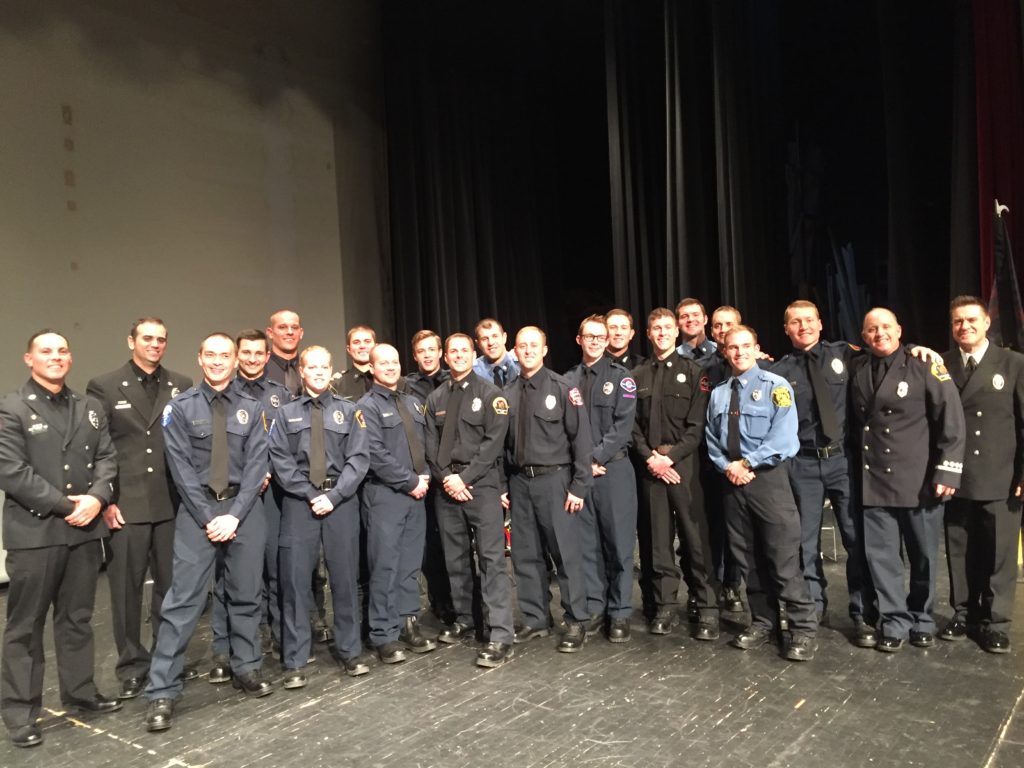Own Your Impact!
By Kevin Housley
There seems to be a lot of chatter around emergency services lately about lack of training, lack of quality training and lack of buy in from “that other crew”; and by lately I mean over the last 17 years of my career…. It got me thinking about where this stems from and how we can make a positive influence on it. The good news is we can absolutely move the needle on not only changing the narrative at the firehouse kitchen table but also at the entire department level. The cool thing is it starts with you and it’s going to be a grind so settle in and let’s get after it.
Start where the new blood is!
Sometimes the best advantage to making positive change is “time”. Not “time” in the sense that change is going to be quick and seamless, but “time” in the sense that even the old salty guy who rides that comfy lounge chair and talks smack all day will retire. And when he does he’ll be replaced by a fresh new face who more than likely has little to zero experience in emergency services.
This new probie is extremely impressionable.
When we start where the new blood is we can change the trajectory and narrative of the entire department when all is said and done. There have been many successful and well respected firefighters who have take this approach and have done some amazing work in their departments but simply embedding themselves where the new blood is, the academy.
Ignore the salt and start with the fresh!
When we have an opportunity to teach and share our book and street knowledge in a controlled and positive learning environment like academy, we set the new standard as to what is acceptable and what is not. We impact the pace and approach on the drillground, in the firehouse and most importantly on the emergency scene. Can we control what happens to the probie when they actually get an assignment to a crew who is more concerned with paydays and four days than quality customer service? Not really. But, we can absolutely empower them with tools and be a consistent resource for them as they slog through that first assignment. We can also show them ways to be successful in that environment and give them permission to take ownership of their career and training. Training in the bay by yourself absolutely sucks but there will be an assignment in your career where this will be your reality.

You gotta value and build those relationships
Fire academies across this country are built on a failure model. And honestly that completely sucks. The whole point of training is to learn. You and I both learn by messing up and adapting to the mistakes a whole lot more so than through some dude spraying tall tales over a powerpoint pain fest and imparting his massive ego upon us. When we build academies upon failure is negative and most be avoided at all costs, this creates fear.
Fear is a massive barrier to learning and when this is the mentality of the academy over all, recruits settle in for the game of academy and just make sure they pass their JPR checkoff sheets. I don’t want, and the customer doesn’t need, a firefighter who is trained to pass a JPR to be riding on the rig with our crew. We need to be adaptable, caring, aggressive, competent and well rounded in every metric to be successful for a long and healthy career. This starts in academy.
If you are fortunate enough to get an opportunity to instruct even as a drillground helper, you can start to build positive relationships that will last your entire career. As I mentioned earlier in the post, a lot of the recruits you’ll come in contact with won’t have any fire service experience. You therefore get to teach them the standard on how to train, how to learn and how to treat a future peer when there is an instructor student relationship.
If your department has an academy built on a “failure is awful” academy module aka if a recruit messes up a learning evolution and they lose points or immediately have to do push-ups, you might not be able to change this…yet. But you sure can influence it and have an impact on how they view training overall.
Pull that recruit aside. Coach them! Give them honest and objective feedback that they can use and provide them space to try it again. If the recruit denies this feedback and shuts down try and figure out why. Are they scared they’re going to mess up again? Are they motivated solely by not wanting to do push-ups? Or do they have a negative mindset and zero motivation that might not be repairable and a larger conversation needs to happen about career choices and what the expectations are for the customers you serve?
It doesn’t end when the academy day is over
When you’re attempting to change culture, especially when it comes to changing emergency scene operations, there are a lot of factors that go into it. By starting at the academy level, delivering quality content, with quality coaching, and providing quality individualized feedback you’re on the right track for progress. But at some point this needs to be supported by SOP’s! Changing or creating department doctrine is hardwork. Most of us don’t want to sit in front of the computer writing policy and procedure but this is where the ultimate change actually happens. Find someone in your department that likes this stuff and build that relationship with them. It’ll save many hours if you do and they more than likely know the process and pitfalls towards success! Reach out to other departments and contacts that you have and get copies of their procedures. Cut and paste the applicable stuff and make them even better before you present to the Chief or committee.
If you have solid doctrine at your department then you are way ahead of the game and can primarily focus on relationships and delivering useful training to online firefighters.
Make sure you continue to foster and grow those relationships you started while the firefighter was a recruit in academy. If you were a good instructor, put your ego aside, and were willing to grind with the recruits then this relationship is a lot easier to grow. If you were an instructor who was more concerned with looking good, showing that you were in charge, and were more than happy to punish the recruit for failure then this relationship is going to be a whole lot harder and could be irreparable. Go out there. Spread your knowledge. Ask questions. Challenge the status quo. Focus on the new kid and change your entire department one academy at a time.






